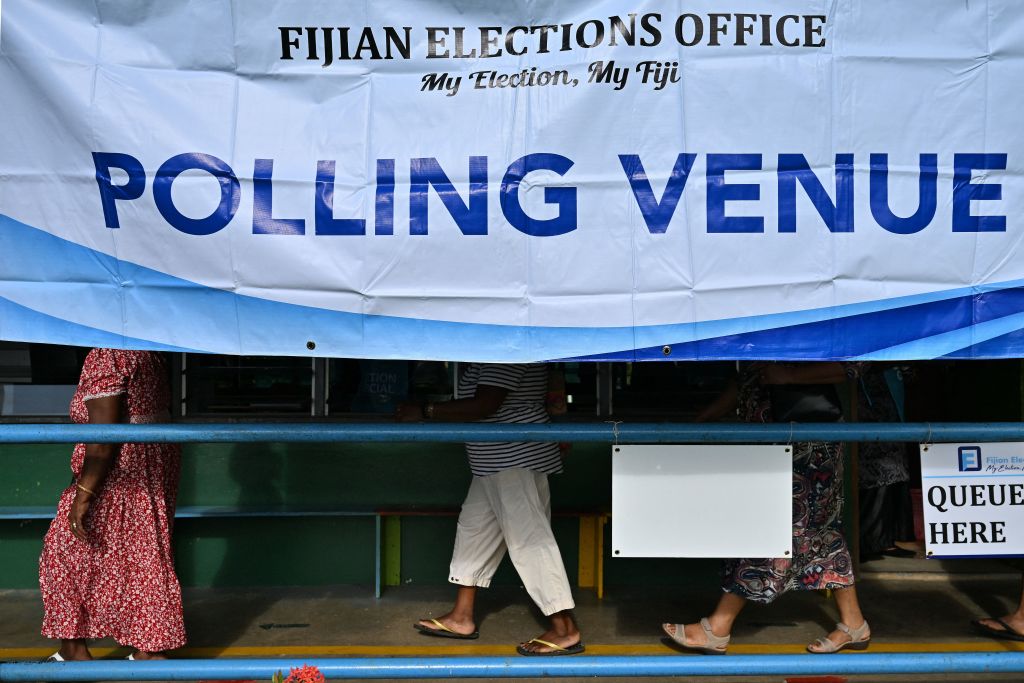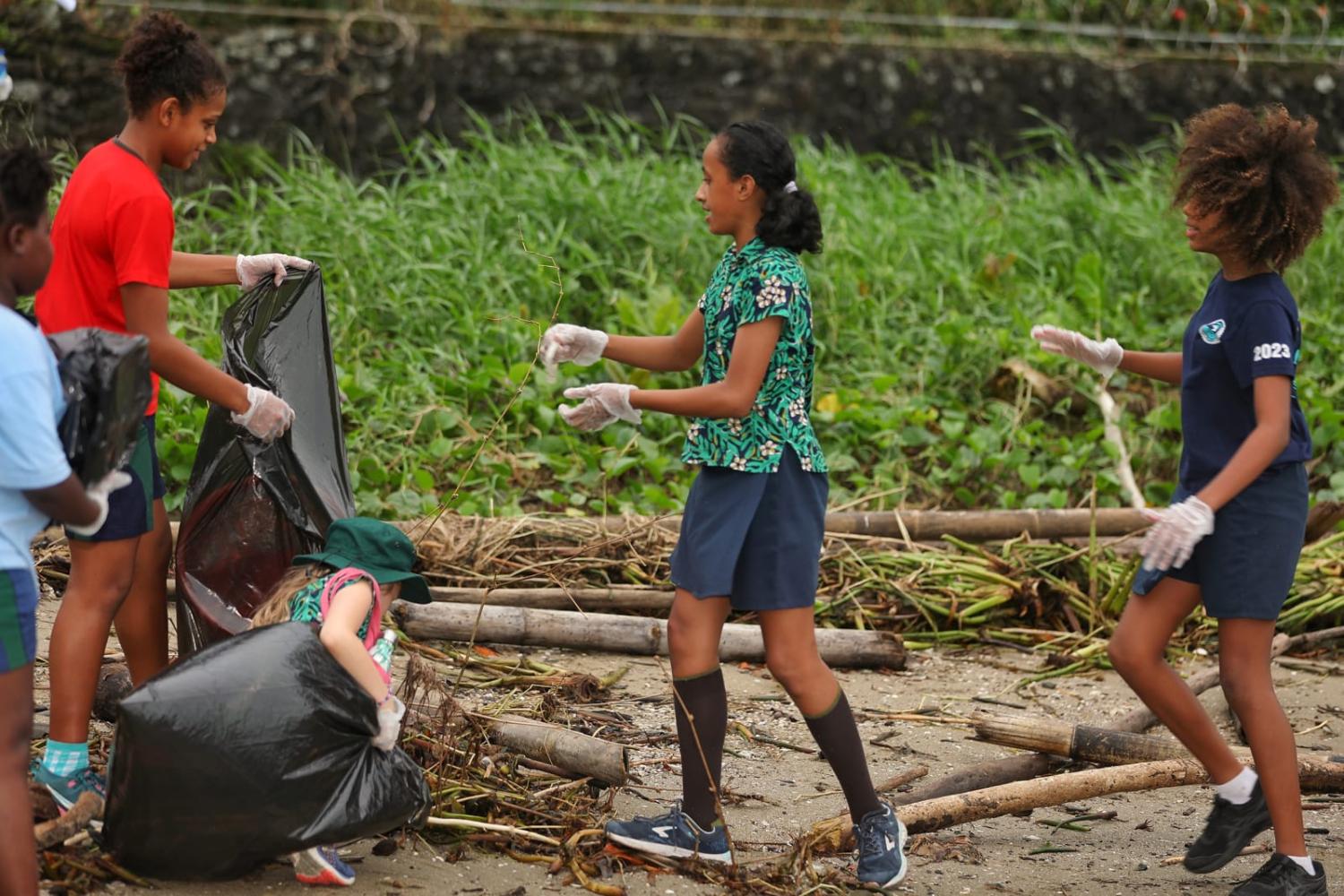Years after the couple were barred from re-entry to Fiji, Dr Padma Narsey Lal returned to the country in February with the ashes of her late husband, Professor Brij Lal. He was laid to rest at his birthplace in Tabia, Vanua Levu. The lifting of the ban was just one of many examples of a fresh approach to local politics since the December 2022 election and the eventual swearing in of Sitiveni Rabuka as Prime Minister – and an end to the 16-year rule of Voreqe “Frank” Bainimarama.
Across the first six months of Fiji’s new political era has come transformational changes and enduring challenges. Press conferences have become punctual. Consultations are held about national policy. Legislative ambushes in parliament are no longer the norm.
Fiji’s strained relationship with The University of the South Pacific has also eased with the return of deported Vice-Chancellor Professor Pal Ahluwalia. Meanwhile Bainimarama and suspended police commissioner Sitiveni Qiliho are facing trial over allegations relating to a 2019 complaint filed by the university.
Pivotal legislative changes have also been ushered in, including the repeal of media laws introduced in 2006 that had a stifling effect on local press freedom. Cabinet also endorsed an end to the electoral name change policy that marginalised married women using their married names on voter identification.
Generational challenges are also on the agenda. During the national budget consultations, the Alliance for Future Generations, a group representing younger Fijians, emphasised the need to address youth unemployment, support young entrepreneurs, and retain skilled labour amid the emigration of Fijians seeking opportunities abroad. Their agenda encompassed decentralised and improved service delivery, focusing on sexual and reproductive health, as well as mental health for rural and maritime areas. Additionally, the Alliance called for reviewing the taxation system, measures for affordable housing, and strengthening social protection schemes, to foster sustainable development and prosperity for future generations.

Young people have long sought various budget priorities, including the forgiveness of student debt, increases in social welfare allocations, and a massive injection for education. The new government made encouraging budget announcements that included funding a national unemployment survey, reviewing tax administration, and supporting the ease of doing business. Also notable were increased budgets for healthcare, infrastructure, and affordable housing projects. The return of taxation rates to pre-Bainimarama levels was a sore point, but the coalition government has maintained its course on steadying a precarious economy.
The issues confronting the government are mounting. Efforts are needed to prevent compromised sovereignty from becoming the cost of political and economic survival in a country with a proud legacy of regional self-determination. Fiji is manoeuvring out of challenging economic times, confronting significant debt rates that had been downplayed by the previous government. Direct budget support has poured in, on top of existing development partnerships, and while development partners were acknowledged in the budget address, donor countries, development agencies, and international financial institutions all face scrutiny for ineffectiveness, discrimination against local staff, and corruption. Fiji sees aid offices expanding in the country – but the outside help can come at the cost of autonomy of action.
A lot of energy was expended bargaining to form the new coalition government. But that step was only the first. The politics of survival must make way for more visionary, transformative policies. Regional blocs such as the Caribbean Community and countries such as Barbados are lobbying for systemic overhauls and reparations from the world’s financial institutions and European countries. Neighbouring Vanuatu took the issue of climate justice to the world’s highest court. Fiji can only afford to thank donors and development partners at this stage.
Deputy Prime Minister Biman Prasad has made an encouraging start with a call for visa-free access between Australia, New Zealand, and the Pacific, reviving a longstanding position within regional circles. Still, other foreign policy issues have been more contentious, such as the opening of an embassy in Jerusalem and the prime minister’s stated satisfaction with Japan’s plans to dump nuclear wastewater into the Pacific Ocean.
It will be up to Fijian citizens and voters to give women and young people the opportunity to lead with executive authority, beyond supporting and ceremonial roles. While parties made efforts to rally women and youth candidates with varying success, women lost representation in parliament this election cycle, and still face uphill battles within the civil service. The future of gender and youth representation in Fiji’s political decision-making will depend on whether collective movements will coalesce or if the enclave will persist, with only an exceptional few crossing the threshold.
With six months of experience, much remains in the balance. In a telling example, a milestone for civic participation was reached when the Ministry of Finance launched a Citizens’ Guide to the 2023–2024 National Budget. Yet persisting class divisions surfaced during consultations when comments by a senior executive of one of Fiji’s largest corporations shed light on the disparate socioeconomic realities that Fijians still live in, with fault lines drawn by class and privilege.
With promising reforms and engaging the public, the journey towards an inclusive and progressive future continues.


